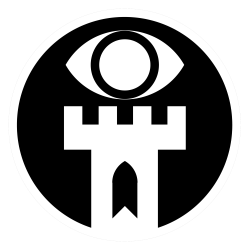I’ve been playing a lot of OSR games lately and have been really enjoying them. Mixed with my 5e games I find myself having a different kind of fun in these sessions. I also frequently see posts on reddit or elsewhere trying to draw out an answer to the question: “what makes OSR distinct from 5e or modern D&D?” or “OSR vs 5e, what gives?”
In an effort to answer this question I have outlined some of my thoughts below. The distinctive characteristics of Old School Renaissance (OSR) tabletop role-playing games compared to the more contemporary 5th Edition (5e) gaming.
Simplicity vs Complexity
OSR games tend to be rules-light, emphasizing simplicity and improvisation. 5e, on the other hand, is known for its rules depth and complexity. OSR often harkens back to the early days of RPGs, where imagination took precedence over rulebooks.
Player Agency
OSR games typically put a strong emphasis on player agency. Players have more freedom to shape the game world and narrative, while 5e often guides players more explicitly through its structured mechanics. This can be misleading in that the 5e character sheet usually has more explicit abilities and options on it, while OSR games tend to rely on the player interpreting the world as real and interacting with it at that level.
Lethality
OSR games can be brutally lethal. Characters can die easily, which adds a real sense of danger and excitement. 5e, while still challenging, tends to be more forgiving, with characters surviving more dire situations.
Emphasis on Exploration
OSR games often revolve around exploration and discovery. The focus is on the unknown, and players are encouraged to engage with their environment creatively. 5e, though it includes exploration elements, may place a greater emphasis on combat encounters and storytelling.
DIY Attitude
OSR fosters a “Do It Yourself” attitude. Game Masters (or Dungeon Masters) are encouraged to create their content, from dungeons to campaign settings. In contrast, 5e provides a wealth of official content and pre-made adventures.
Setting vs Tools
OSR games typically provide minimal setting information, encouraging GMs to craft their worlds. Often this comes in the form of tools to help generate campaign or adventure information. 5e, on the other hand, offers richly detailed settings like the Forgotten Realms and Eberron, though not as detailed as some earlier versions.
Community and Zine Culture
OSR has a vibrant indie community, often expressed through zines and small publications. It’s a grassroots movement where creators share their ideas and hacks. 5e has a more predominate corporate presence with official books and organized play, though the 3rd party creator space is in fact quite large and lively.
Randomness
OSR often embraces randomness in character creation and events, making each game unique. 5e offers more structured character creation and gameplay, providing balance and predictability. This tends to manifest as “character builds” which don’t really have an analogue in OSR games.
In the end, both OSR and 5e offer fantastic ways to enjoy tabletop role-playing games, but they cater to different playstyles and preferences. It’s about finding what suits your group’s storytelling and gaming style best. Some people like myself will find a way to enjoy both, and while OSR vs 5e sounds evocative some game like Shadowdark RPG seem to want to bridge the divide. What’s your take on this? Any particular preferences or experiences with these systems in your tabletop adventures? Do you think I got it dead wrong? Sound off in the comments below and let’s have that discussion.
